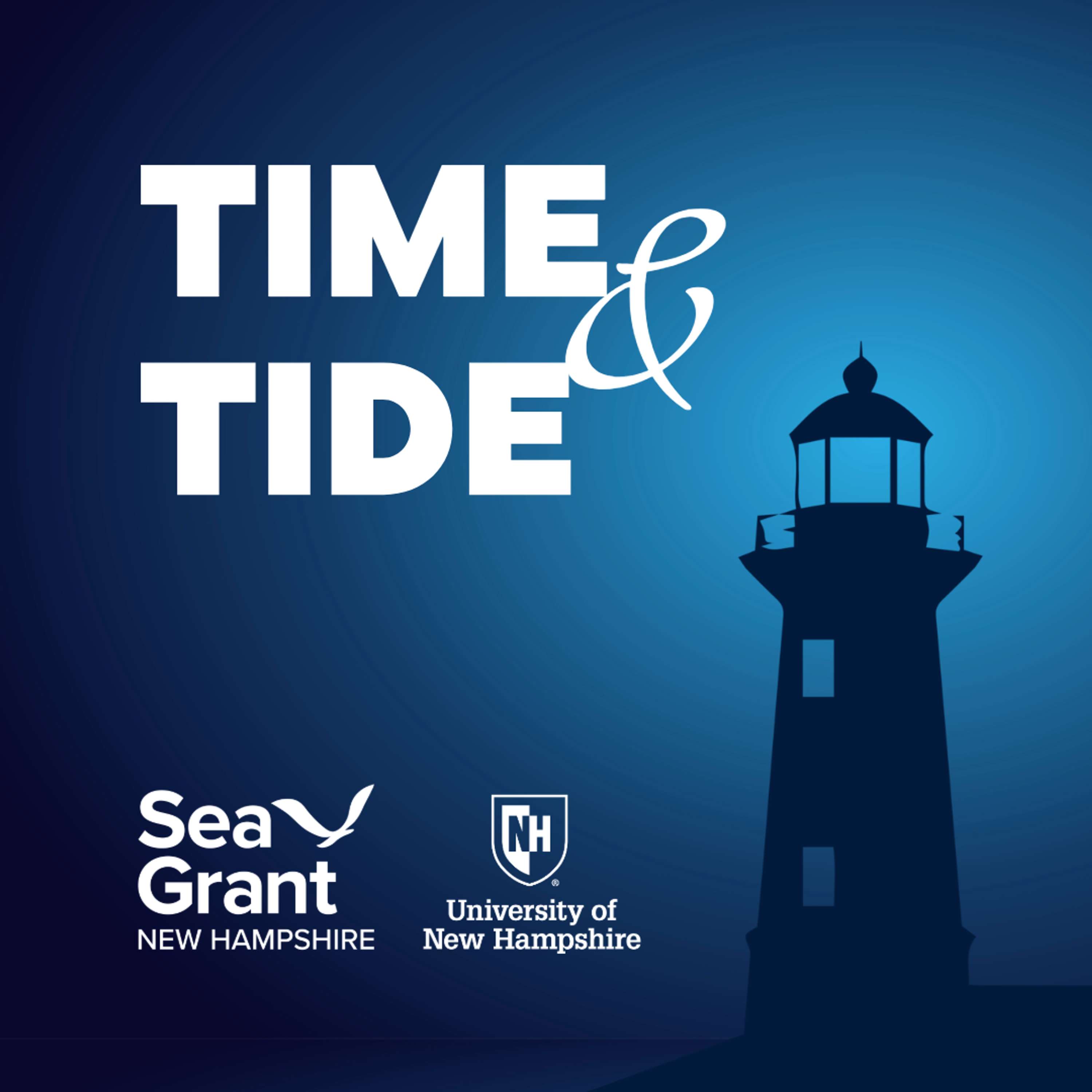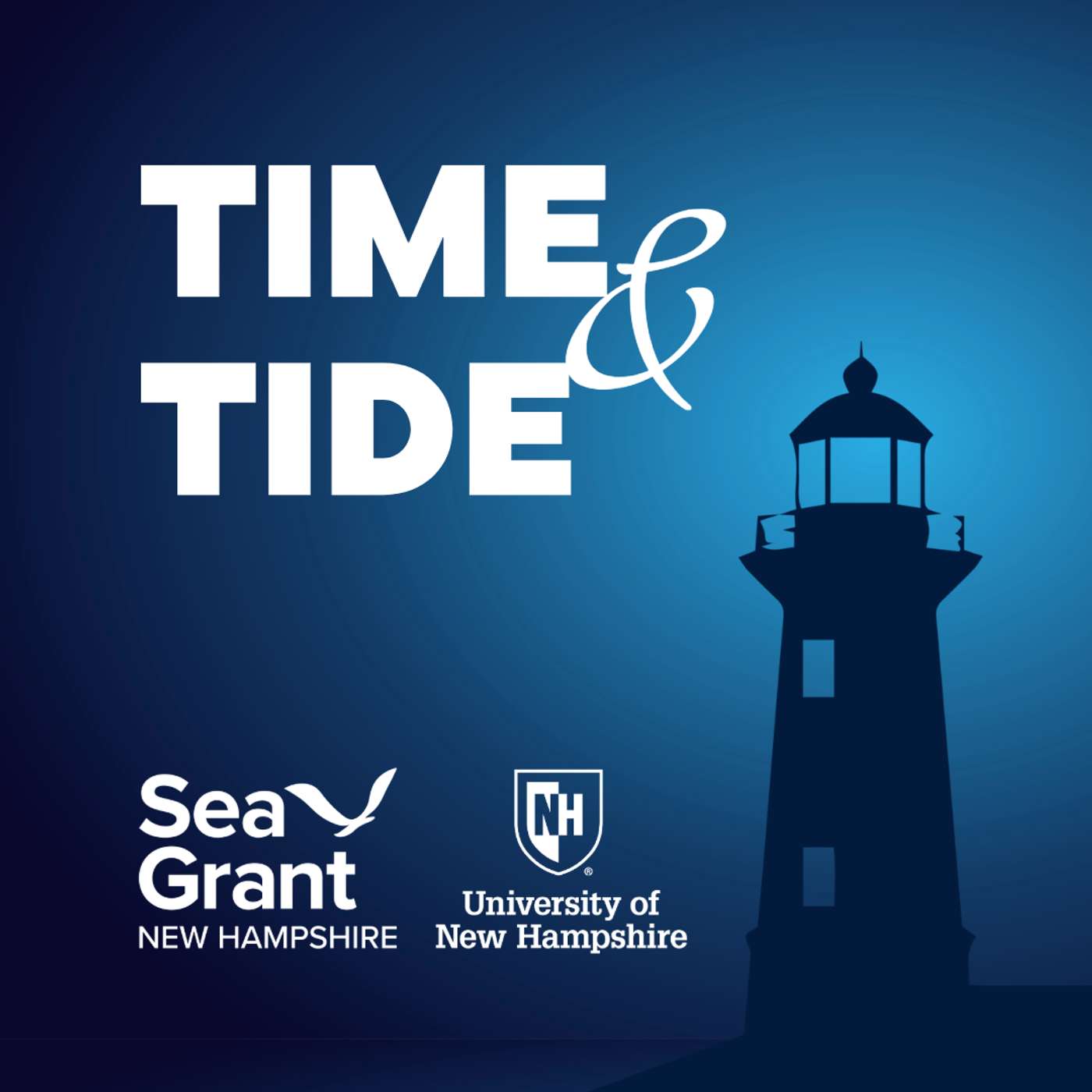Time and Tide

Time and Tide
Podcast Description
Time and Tide is a New Hampshire Sea Grant podcast for anyone who is connected to the Granite State’s waterways and wants to learn more about the latest science impacting both yourself, and the animals that live here. Hosts Erik Chapman and Brian Yurasits break down complex topics from seafood to coastal resilience by bringing on guests from both the research world, and local industries to share their expertise and perspectives.
Podcast Insights
Content Themes
The podcast explores various themes related to coastal ecosystems, such as coastal resilience, the impact of PFAS contamination, and the importance of local aquatic species. Specific episodes include discussions on real estate practices surrounding flood risks and the unique role of lumpfish in aquaculture, showcasing the diverse conversations about environmental challenges and solutions.

Time and Tide is a New Hampshire Sea Grant podcast for anyone who is connected to the Granite State’s waterways and wants to learn more about the latest science impacting both yourself, and the animals that live here. Hosts Erik Chapman and Brian Yurasits break down complex topics from seafood to coastal resilience by bringing on guests from both the research world, and local industries to share their expertise and perspectives.
From major storms to daily tides, the sandy shores of New Hampshire are constantly moving — gaining sand in some places and losing it in others. But how do scientists and volunteers actually track those changes over time?
In this episode of Time and Tide, we dig into the world of beach profiling — a simple yet powerful method that measures the contour of the shoreline month after month to reveal patterns of erosion and accretion along our coast. By taking regular measurements of beach elevation and slope, the NH Volunteer Beach Profile Monitoring Program contributes to long-term coastal monitoring efforts that inform local decision-making, coastal resilience planning, and scientific research.
Learn how citizen scientists — also referred to as participatory scientists — use two measuring poles to collect this important data, while researchers interpret the meaning of this for your favorite New Hampshire beaches.
What better way to explain beach profiling, than to take you for a walk along the beach in Seabrook, NH, where a small group of researchers and volunteer citizen scientists meet on a windy winter day to measure the beach.
Guest Speakers:
Alyson Eberhardt, Ph.D., Coastal Ecosystems Extension Specialist, New Hampshire Sea Grant
Larry Ward, Ph.D., Research Associate Professor, UNH Center for Coastal and Ocean Mapping
Wells Costello, Citizen Science Program Manager, New Hampshire Sea Grant
Rachel Morrison, Research Assistant, UNH Center for Coastal and Ocean Mapping
Hosted by: Brian Yurasits, Science Communication Specialist, New Hampshire Sea Grant
Produced by: Brian Yurasits
Further reading:
Citizen Science in Shifting Sands (StoryMap)
New Hampshire Sea Grant works to enhance our relationship with the coastal environment to sustain healthy and resilient ecosystems, economies, and communities through integrated research, extension, education, and communications efforts. Based at the University of New Hampshire, New Hampshire Sea Grant is one of 34 programs in the National Oceanic and Atmospheric Administration’s National Sea Grant College Program, a state-federal partnership serving America’s coasts. Learn more by visiting: seagrant.unh.edu
University of New Hampshire is an equal opportunity employer, learn more: https://extension.unh.edu/civil-rights-statement

Disclaimer
This podcast’s information is provided for general reference and was obtained from publicly accessible sources. The Podcast Collaborative neither produces nor verifies the content, accuracy, or suitability of this podcast. Views and opinions belong solely to the podcast creators and guests.
For a complete disclaimer, please see our Full Disclaimer on the archive page. The Podcast Collaborative bears no responsibility for the podcast’s themes, language, or overall content. Listener discretion is advised. Read our Terms of Use and Privacy Policy for more details.